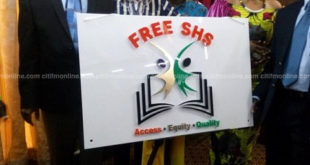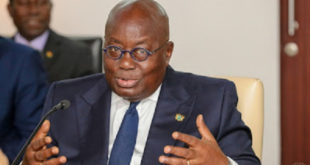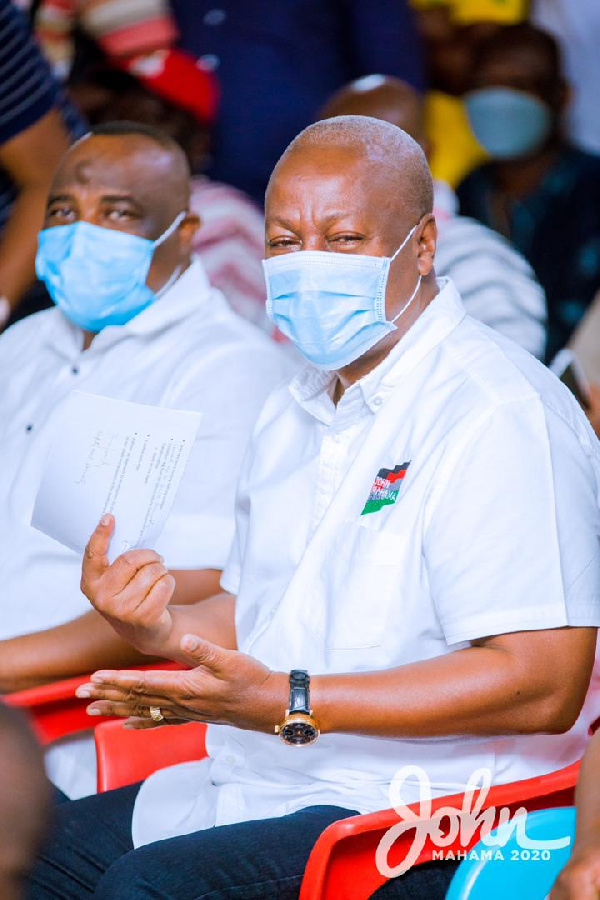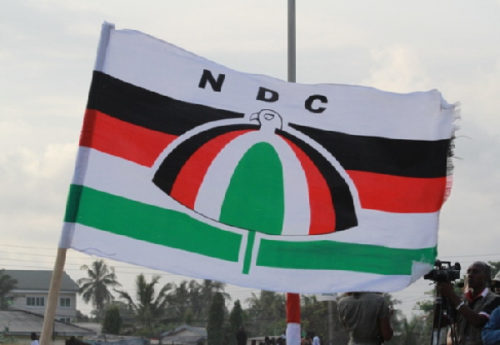
File photo
In his State of the Nation Address before exiting power, former President Mahama indicated clearly that his NDC administration had edaciously ‘consumed all the meat on the bone’.
In the strict sense, the former president was alluding to the fact that his administration had licentiously emptied the national coffers and that there were no funds to fix hospitals, schools, roads, water, toilets, amongst others.
As a consequence, the innocent citizens ended up experiencing economic hardships, starvation, depression, emotional labour and squalor which sent the vast majority of Ghanaians to their early graves.
Unsurprisingly, the vast majority of unhappy Ghanaians, who regrettably found themselves in the doldrums of poverty, rightly voted against the NDC and Ex-President Mahama in the 2016 and 2020 general elections, largely due to the unresolved business crippling dumsor, the wanton corruption (four out of innumerable suspects have since been convicted and sentenced), and the unpardonable incompetence (moved economic growth from 14% in 2011 to a miserable 3.4% and a single digit inflation to 15.4% by December 2016).
In a fairly stable democracy such as ours, governments pop in and out. And given the political dynamics in Ghana, it is a trend we can expect to continue unabated.
The all-important question we should be asking then is: should we trust every political party to form a government with an excuse of steering the nation to the right direction?
Well, it is extremely difficult to gloss over the dreadful errors in decision-making by the successive NDC governments which invariably destabilised Ghana’s macroeconomic indicators.
Frankly stating, I share the sentiments of the sceptics who argue that despite spending 27 years in government, the successive NDC administrations failed woefully to improve upon the socio-economic standards of living of Ghanaians.
“If you would look deeper, history is broad yet deep that binds the core existence of the world. Hence, history keeps the records of events that happened in the past.
“History is a lesson in the past but can also be the greatest regret of the future. Yet the reason why there is history is because of the events that were created by man (Hughes 2010).”
If we go down memory lane, Mills/Mahama administration inherited a favourable economic foundation laid by former President Kufuor and his NPP administration.
It must, however, be noted that three years after former President Kufuor’s NPP administration had put in dint of effort and discovered oil in commercial quantities, the late President Mills only had the easiest job of turning on the valve at an offshore platform in December 2010 to pump the first commercial oil.
Ghana associated itself with the petroleum exporting countries. Believe it or not, Ghana started to export crude oil which boosted the economic growth.
The economy grew favourably from around 8.4 per cent to around 14 per cent by 2011 and Ghana subsequently reached the Lower Middle Income status.
Ghana’s GDP grew from GH28 billion to a staggering GH47 billion by 2011.
Ghana was then cited as the world’s fastest growing economy in 2010 (Economy Watch, 2010).
To his credit though, the late President Mills continued to improve upon the excellent economic foundation laid by former President Kufuor and his NPP administration.
Unfortunately, however, President Mills mysteriously departed from life in July 2012. And per Ghana’s 1992 Constitution, Vice President Mahama was the next in line to take over the presidency.
Bizarrely, things started to fall apart. It went from bad to worse following President Mills sudden and mysterious death.
Suffice it to stress that Ghana under the erstwhile NDC administration, so to speak, went into the throes of economic meltdown amid harsh socio-economic standards of living.
Ghana, to be quite honest, does not need a Father Christmas who would carelessly give away our hard earned resources.
But Ghana rather needs a serious, a committed and a forward-thinking leader who can utilise our scarce resources judiciously to the benefit of all Ghanaians.
That being said, it is somewhat dreary to keep belabouring the point about the sorrowful state of Ghana’s economy under the erstwhile NDC administration, but for the sake of balanced annotation, it is important to state the facts.
It is, indeed, extremely disturbing to keep listening to the same people who wilfully collapsed the once thriving economy, up in arms and shouting from the roof top about the current state of Ghana’s economy.
How could individuals who disgustingly send Ghana’s economy deeper and deeper into the mire turn around and accuse the NPP government of economic mismanagement?
Apparently, it was the same NDC government that spent excessively and above its means and in the process needlessly increased our total debt from GH9.5 billion in 2009 to GH122.4 billion as of December 2016.
As a result, there was no money left in the national purse for the incoming NPP government to manage the affairs of the country.
It would thus appear that the vociferous minority NDC operatives have no regard for accepted rules and standards. This may explain why the clamorous opposition NDC operatives are bizarrely up in arms about the NPP administration’s prudent spending on capital expenditure.
It is, indeed, boundlessly unreasonable for the minority NDC operatives to expect President Akufo-Addo and his NPP administration to spend monies they don’t have, notwithstanding the fact that it was the same people who abhorrently emptied the national coffers to the dismay of discerning Ghanaians.
In spite of the insurmountable difficulties, since assuming power, the Akufo-Addo’s administration has taken commendable strides to improve the social mobility through implementation of poverty reduction policies such as free SHS, one district one factory, one million dollars per constituency, tax reductions, a dam per village in the northern part of Ghana, among others.
In addition to the pragmatic and judicious implementation of social interventions, the Akufo-Addo’s government, before the coronavirus, raised the economic growth from a disappointing 3.4% as of December 2016 to around 8.5%within a short space of time.
K. Badu, UK.
k.badu2011@gmail.com
Source : Ghanaweb
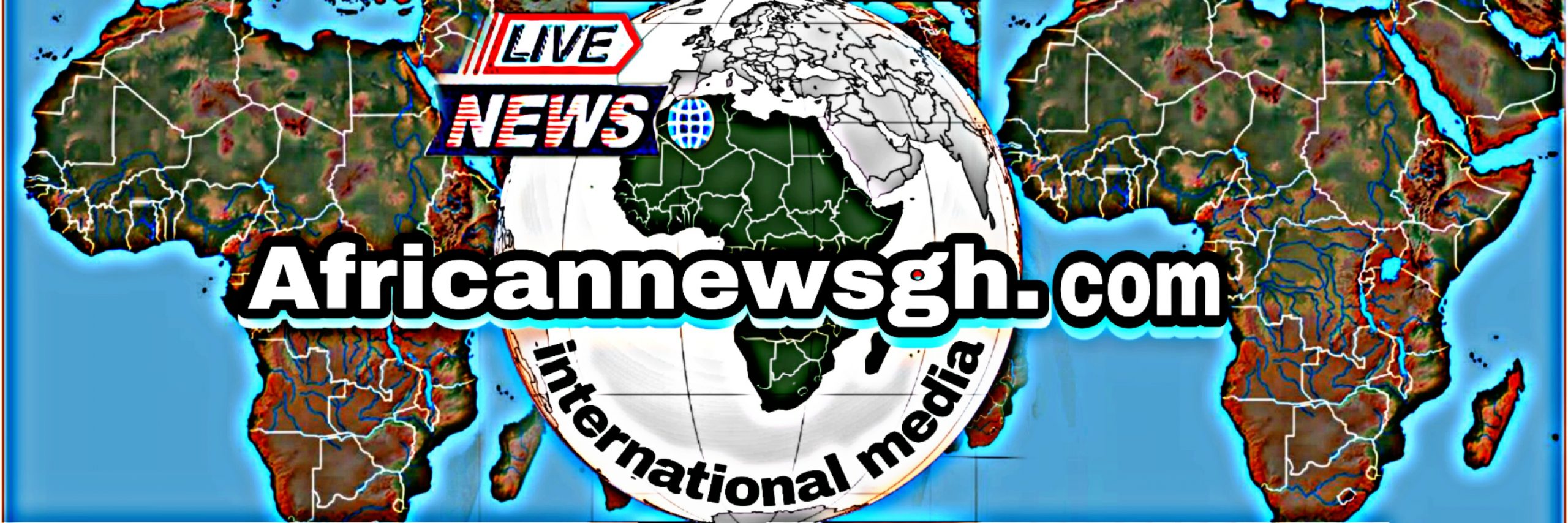 African News Best News Portal
African News Best News Portal
